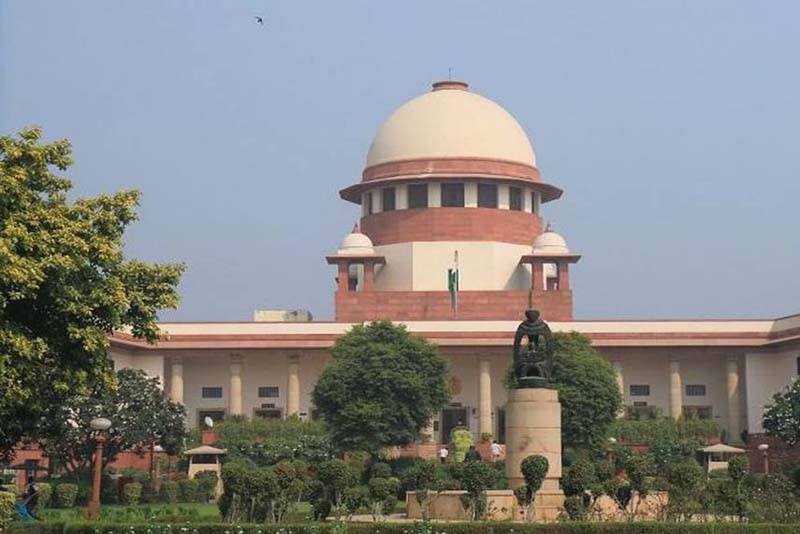NEW DELHI, Apr 5: The Supreme Court Friday refused to grant interim stay on the electoral bonds scheme and asked the petitioner NGO to file an appropriate application for it.
A bench headed by Chief Justice Ranjan Gogoi said the issue requires detailed hearing and, therefore, it will be taken up on April 10.
Advocate Prashant Bhushan, appearing for NGO Association of Democratic Reforms (ADR), alleged that thousands of crore are anonymously being given to political parties.
He alleged that 95 percent of electoral bonds are being given to the ruling party.
Attorney General KK Venugopal, appearing for the Centre, said the electoral bonds scheme was brought to check the flow of black money into political funding.
He said Bhushan was giving an election speech that 95 percent of the electoral bonds have gone to ruling party.
The bench in lighter vein said: “It’s election time. We will hear on April 10”.
ADR’s application has sought stay on the Electoral Bond Scheme, 2018, which was notified by the Centre in January last year.
It said the amendments carried out in the relevant Acts have “opened the floodgates to unlimited corporate donations to political parties and anonymous financing by Indian as well as foreign companies, which can have serious repercussions on the Indian democracy”.
The matter holds importance as the Centre and the Election Commission (EC) have taken contrary stands, with the former justifying the decision saying it would promote transparency in political funding while the latter maintaining that the changes made in the law would have “serious repercussions”.
In its affidavit filed on one of the petitions filed by the CPI(M) and its general secretary Sitaram Yechury, the Centre defended its decision to issue electoral bonds, saying it aimed at ensuring “enhanced accountability” and pushing electoral reforms “to defeat the growing menace of black money”.
The Centre said the bonds were introduced on January 2, 2018 to promote transparency in funding and donations received by political parties and that these can be encashed by an eligible political party only through their authorised bank accounts.
It said the bonds did not have the name of the donor or the receiving political party and only carried a unique hidden alphanumeric serial number as an in-built security feature.
Only a political party registered under section 29A of the Representation of the People Act, 1951 and which had secured not less than one per cent of the votes polled in the last election to the Lok Sabha or a legislative assembly, would be eligible to receive the bonds, the Centre had said. (PTI)
Trending Now
E-Paper


